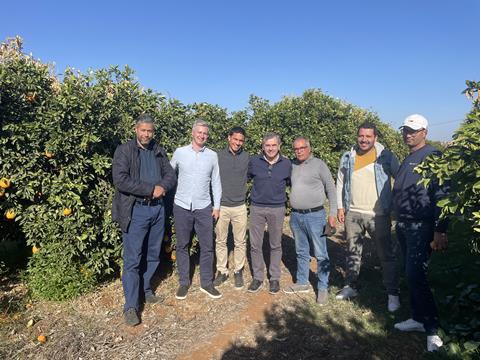Company wants to build closer ties with producers and explore new business opportunities in the country

Salix Fruits is seeking to strengthen its ties with Moroccan producers as it continues to build its citrus programme from the north African country.
During a recent visit to Morocco to evaluate the current citrus campaign and secure the necessary volumes for its US programme, Vince Biasibetti, executive sales for the US at Salix Fruits said he wanted to build closer relationships with the producers and gain a better understanding of their operations and farms.
Morocco is in the grip of a severe drought which has reduced volumes and sizing in the citrus crop. The country exported 450,000 tonnes of citrus in 2022/23, well below the record 766,500 tonnes shipped in the 2021/22 season.
According to the World Citrus Organisation, production is expected to partially recover this season, bouncing back to just over 2m tonnes, of which soft citrus will make up 1m tonnes (+11 per cent) and oranges 930,000 tonnes.
“While the overall volume remains unaffected, the offering will be more concentrated on smaller-sized fruits, particularly mandarins (Nadorcott) and oranges (Maroc Late). The farms visited in Marrakech and Beni Mellal showed varying degrees of impact from the drought on production,” Biasibetti said.
Salix Fruits noted that the visit allowed for the exploration of new business opportunities and learning about lesser-known varieties that could be shipped to the American market.
Concerning the FDA’s Foreign Supplier Verification Programme (FSVP), aimed at ensuring that foreign suppliers of food and beverages meet the same safety requirements as US-based companies, Biasibetti said: “tracking the implementation of this programme with our suppliers is also an important factor in our visit to production sites”.
Biasibetti added that “ensuring compliance with the programmes allows us to guarantee the food safety required by the FDA and compliance with public health protection standards, including safety guidelines, preventive controls, and proper labelling”.



